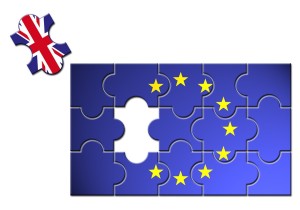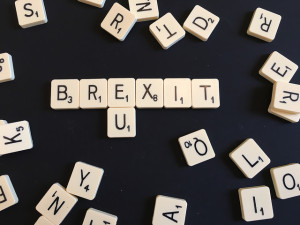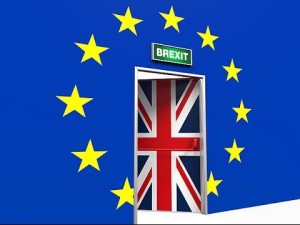No matter which way you voted last Thursday, there’s no doubt that in years to come you’ll remember what happened on June the 23rd 2016. The people of the United Kingdom (well, England and Wales) decided to end the countries membership of the European Union. “Brexit” as it had been dubbed by news stations across the world was something few considered attractive less than 10 years ago – but now it is definitely going to happen.
Everywhere you look in the media today you can see stories about how Brexit is going to affect us. And, as we’re not not the kind of website to miss out on a trend, here’s our obligatory Brexit article. Read on to find out how Brexit may affect the wristwatch industry.
Watches May Become More Expensive
Immediately after the Brexit vote was announced, the Pound immediately slumped against the Dollar and the Euro. It has strengthened again since, but if it does fall further then the cost of imported watches may go up in price. It is true that prices have not increased despite the Pound falling slightly since the beginning of the year, but it is very unlikely that prices will stay the same in the UK if the Pound continues to fall. A weaker pound isn’t all bad news though, as it will be good news for British watch manufacturers (as we we will come to later) but it is certainly not good news for those who love their luxury Swiss watches.
Prices may also go up if Britain withdraw from the EU without having negotiated a new trade agreement then we will have to trade under World Trade Organisation rules. This could lead to tariffs being applied to foreign goods which means that French, German and Swiss wristwatches would become more expensive. It is in the interests of both Britain and other EU countries to keep tariffs to a minimum though, so many people in British government will hope this doesn’t happen.
Some Prices May Go Down
Imports from some countries outside of the EU are subject to customs charges at present. Many Brexit campaigners have called for free trade agreements with other non-EU countries. China is one country rapidly gaining more importance in the technology world with a number of smartwatches and fitness trackers produce over there. FITYA watches (who are one of a small number of manufacturers to develop a space watch) from China who are becoming ever more popular in the United Kingdom.
If the UK government manage to sign new free trade agreements with non-EU countries then the cost of importing watches from outside the EU could go down. It may also help reduce the cost of watch components produced in China, making these more attractive to watch manufacturers based in the UK and potentially reducing the cost of producing watches.
A weaker pound may also be good for tourists buying watches in the United Kingdom. If the price of watches isn’t adjusted to bring it in line with the cost in other currencies, tourists buying watches tax-free will be able to pick up a great bargain. When the pound took a hit due to the uncertainty of the Brexit vote earlier in the year watchmakers did not adjust their prices to bring them in line with prices in Euros or Dollars. Brian Duffy told the Financial Times why this was good news for tourists, “We are now seeing an across-the-board increase in tourist activity in luxury watches. Last year, we had real difficulty and we were losing customers to France, but now it’s the other way round.” However he wasn’t sure this would last, adding that “It’s logical to assume the disparity will be addressed by price changes.”
What About British Watchmakers?
If Brexit leads to us trading under WTO rules then British watchmakers could be at an advantage over European watchmakers with customers in the UK. If tariffs are applied to watches imported from the European Union, there is a chance that British watchmakers may become a more attractive option for British consumers. Of course, this will negatively impact British watchmakers when it comes to exporting watches to the EU. Watchfinder & Co voiced their concern to the Financial Times, explaining that “We’re looking to expand our business into Europe in the next 24 months. It would be a nightmare for us if new restrictions were put in place.”
Some British watchmakers have already shown concern that they may struggle to find the skills they need when the UK leaves the EU. Bremont found after transferring some of their manufacturing to the UK that “a lot of the skills we need, finishing for example, still can’t be found in the UK.” Watchfinder & Co brought workers from Spain, France, Denmark and Finland into their Maidstone service centre as they cannot find these skills in the UK labour market. There are questions as to how British watch manufacturers will react if there are restrictions on the free movement of people.
Some good news for British watch manufacturers and retailers is that Brexit leading to a weaker Pound could make them more attractive for international consumers. The best outcome for British watchmakers would be for the government to get to work signing free trade agreements with the EU and beyond. If this happens then a the trade agreements plus a weaker pound would help British watchmakers increase their exports.
Financial Sector Woes May Affect The Watch Industry
Brexit is expected to impact the financial sector very heavily with “tens of thousands” of jobs at risk according to British Chancellor George Osborne. If these jobs move out of the country then there is certainly a risk to watch stores in London which are popular with financial sector workers. As Bremont told the Financial Times, “You only need a couple of big institutions to pull out [following a vote to leave the EU] and there’ll be a big impact on the performance of those stores.”
It is expected that the government will be very eager to come to a deal which protects the financial sector. But this may not be easy when it comes to balancing the demands of Brexit voters and the demands of the European Union. Switzerland is one country which has their own negotiated agreement with the EU and Brexit campaigners have said they would want something similar. But despite years of negotiations the Swiss agreement does not include the financial sector access that the UK needs.
Conclusion
It’s tough to know what will happen once the UK leaves the EU, but businesspeople in all industries will certainly be watching with interest. If the United Kingdom remain in the EEA then it is expected that very little will change for the watch industry. But the big unknown is what will happen if Brexit means leaving the EEA altogether.
Predicting what may happen if Brexit leads to a complete withdrawal from the single market or a negotiated agreement similar to that of Switzerland. But if predictions of potential higher prices, watchmaking skill shortages and the exodus of financial sector jobs turns out to be correct – lBrexit may turn out to be quite devastating for the British watch industry.
Images: Speed Property Buyers
Sources: Financial Times, Forbes, BBC









